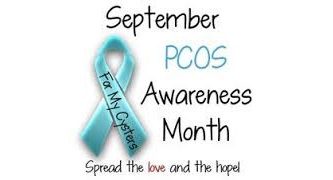In October 1988, President Reagan proclaimed October as National Pregnancy and Infant Loss Awareness Month. This month is an occasion to recognize the grief and sorrow patients experience when they suffer a miscarriage, pregnancy loss, stillbirth or death of an infant. It also is a time to remember and celebrate the hopes and dreams parents had for their lost angels. In announcing this commemorative month, President Reagan poignantly described the need to understand the unique heartbreak bereaved parents feel: When a child loses his parent, they are called an orphan. When a spouse loses his or her partner, they are...
Infancy and Pregnancy Loss Awareness Month
Honoring the memories of the tiny souls who were loved and lost In October 1988, President Reagan proclaimed October as National Pregnancy and Infant Loss Awareness Month. This month is an occasion to recognize the grief and sorrow parents experience when they suffer a miscarriage, pregnancy loss, stillbirth or death of an infant. It also is a time to remember and celebrate the hopes and dreams parents had for their lost angels. In announcing this commemorative month, President Reagan poignantly described the need to understand the unique heartbreak bereaved parents feel: When a child loses his parent, they are called...
PCOS and Pregnancy
You’ve had irregular periods for years. Maybe you’ve experienced acne, weight gain and excess facial hair. Now you can’t get pregnant. But until you started trying to conceive, doctors never put two and two together to confirm you had polycystic ovary syndrome, also known as PCOS. PCOS is the most common form of female infertility. PCOS prevents ovulation by stopping the ovaries from making the hormones needed for an egg to mature. The follicles, however, continue to grow and fill with fluid, eventually become cysts, which we confirm by ultrsound. In addition, the ovaries produce male androgens, like testosterone, instead...
PCOS and Pregnancy
You’ve had irregular periods for years. Maybe you’ve experienced acne, weight gain and excess facial hair. Now you can’t get pregnant. But until you started trying to conceive, doctors never put two and two together to confirm you had polycystic ovary syndrome, also known as PCOS. PCOS is the most common form of female infertility. PCOS prevents ovulation by stopping the ovaries from making the hormones needed for an egg to mature. The follicles, however, continue to grow and fill with fluid, eventually becoming cysts, which we confirm by ultrasound. In addition, the ovaries produce male androgens, like testosterone, instead...

PCOS by the Numbers
September is designated as PCOS Awareness Month. PCOS, polycystic ovary syndrome, is the most common female reproductive disorder. It can start affecting women from around the time they begin to menstruate, but generally subsides around menopause. If left untreated, PCOC can have long-term health repercussions throughout a woman’s life. To give you an overview of the impact of PCOS, here is a rundown of PCOS by the numbers. Five million, One in Ten and 12 Percent It is estimated that approximately five million or one in ten U.S. women are affected by PCOS. That translates into 12 percent of the...
Can Surgery Help me Get Pregnant?
Surgery can sound scary. Thinking about anesthesia, recovery time and potential pain can send anyone into a full-fledged panic attack. For some infertility patients, however, we recommend surgical intervention as the best option for both the diagnosis and treatment of your condition. The good news is that side effects and recovery times have significantly improved and benefits vastly outweigh the risks. Here are several reasons why surgery may be the best approach before proceeding with intrauterine insemination or in vitro fertilization (IVF): Both women and men can benefit from surgeries that will allow natural conception now and in the future...

Can Surgery Help Me Get Pregnant?
Surgery can sound scary. Thinking about anesthesia, recovery time and potential pain can send anyone into a full-fledged panic attack. For some infertility patients, however, we recommend surgical intervention as the best option for both the diagnosis and treatment of your condition. The good news is that side effects and recovery times have significantly improved and benefits vastly outweigh the risks. Here are several reasons why surgery may be the best approach before proceeding with intrauterine insemination or in vitro fertilization (IVF): Both women and men can benefit from surgeries that will allow natural conception now and in the future...

Couple’s Four Year Infertility Journey Ends with Dr. Jane Frederick
Lori and Sean’s path to parenthood included treatment from her OBGYN and two local fertility clinics, an ectopic pregnancy, one failed IVF cycle and three heartbreaking miscarriages. Others might have given up, but Sean’s online research took the couple from Phoenix to Orange County California and Dr. Jane Frederick. Right away, Lori and Sean knew they had found the right doctor. Said Lori, “We were so impressed by Dr. Frederick’s confidence and compassion. She reassured us we could make our efforts work. It was the first time we felt we’d met a doctor who understood our pain.” They found that...
The Vicious Cycle of Stress and Infertility
‘Relax and it will happen’ is advice most infertility patients hate to hear. For many, it implies getting pregnant may be their fault. This, in turn, only makes them feel more stressed, leading to a vicious cycle of self-blame. This statement can be especially hurtful for couples with a diagnosis of male fertility, blocked fallopian tubes or another condition where they will not get pregnant without a doctor’s help, regardless of their stress level. One of the most perplexing issues confronting the infertility field is the true relationship between stress and infertility and stress and IVF success rates. Even a...
The Vicious Cycle of Stress and Infertility
‘Relax and it will happen’ is advice most infertility patients hate to hear. For many, it implies getting pregnant may be their fault. This, in turn, only makes them feel more stressed, leading to a vicious cycle of self-blame. This statement can be especially hurtful for couples with a diagnosis of male fertility, blocked fallopian tubes or another condition where they will not get pregnant without a doctor’s help, regardless of their stress level. One of the most perplexing issues confronting the infertility field is the true relationship between stress and infertility and stress and IVF success rates. Even a...
